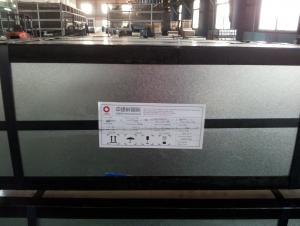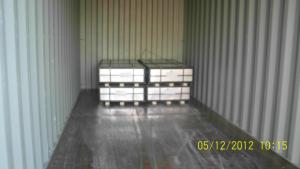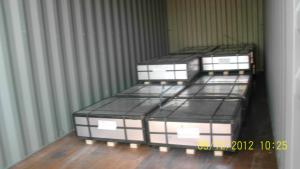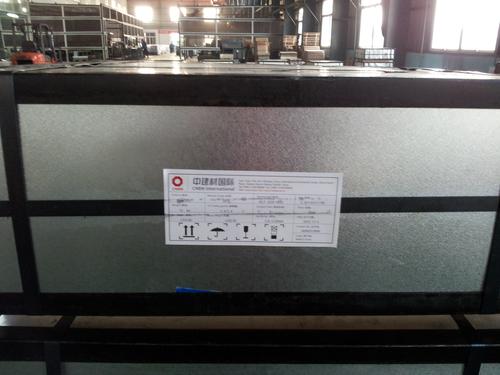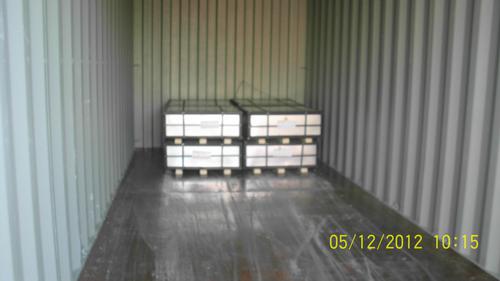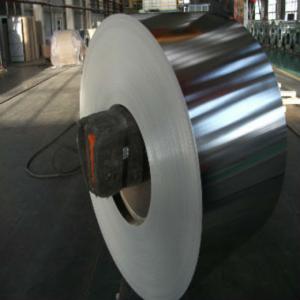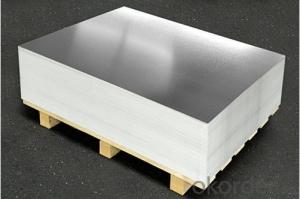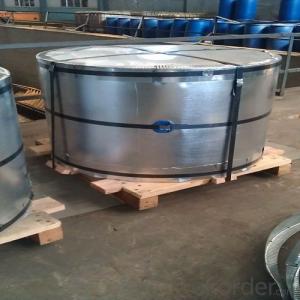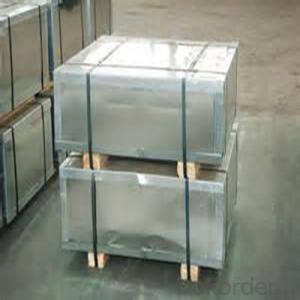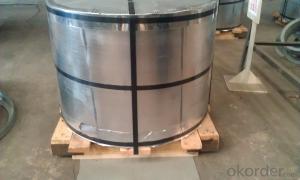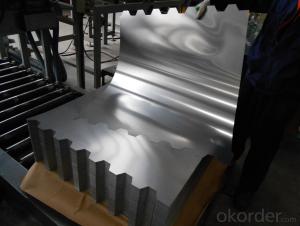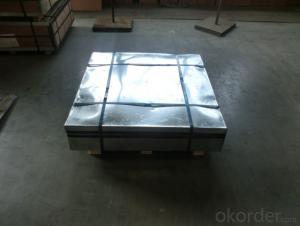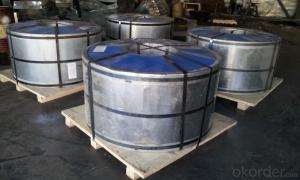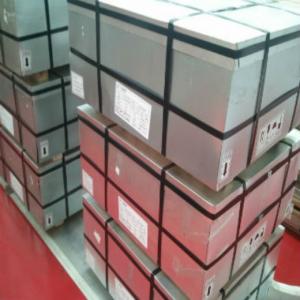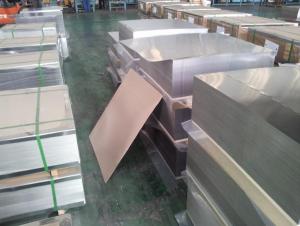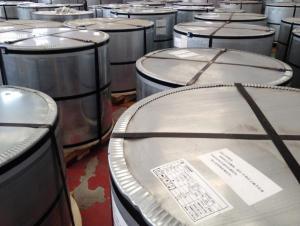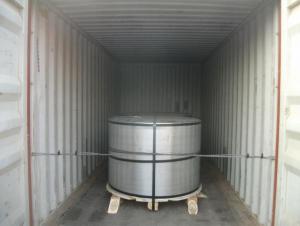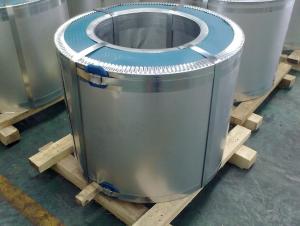Tin Free Steel TFS
- Loading Port:
- China Main Port
- Payment Terms:
- TT OR LC
- Min Order Qty:
- -
- Supply Capability:
- -
OKorder Service Pledge
OKorder Financial Service
You Might Also Like
Tin Free Steel (TFS)
Is also known as chromed steel, as it is obtained by coating the metal base (low-carbon steel) with an ultra-thin layer of metallic chrome and then with a chromium oxide layer.This steel product was developed to meet economic requirements, and excels tinplate in paintability, paint adhesion, and economy. It is widely used for making beverage cans and 18-liter cans. It is also used for making photographic film cases and as a protective material for optical fiber cables.
Our TFS Specification:
Standard: AISI, ASTM, BS, DIN, GB, JIS
Material: MR,SPCC
Thickness:0.15mm - 0.45mm
Width: 600mm -1150mm
Temper: T1-T5
Annealing: BA & CA
Coil Inner Diameter: 508mm
Weight: 6-10 tons/coil 1~1.7 tons/sheets bundle
Oil: DOS
Surface: Finish,bright,stone,matte,silver
Packing:
1、For sheets: plastic or waterproof paper, metallic cover and angles, steel strips,wooden pallet.
2、For Coils: plastic or waterproof paper,plastic protect plate,steel strips.
Both Prime and Second Quality Are Available!!!
- Q: Can tinplate be used for bakery packaging?
- Yes, tinplate can be used for bakery packaging. It is a durable and food-safe material that provides protection to bakery products from external factors such as moisture and light. Tinplate also offers a visually appealing packaging option and can be easily decorated or customized to enhance the product's presentation.
- Q: How does tinplate contribute to the durability of gardening tools?
- Tinplate contributes to the durability of gardening tools by providing a protective coating that prevents rust and corrosion. This helps to extend the lifespan of the tools, making them more resistant to wear and tear caused by exposure to moisture and harsh outdoor conditions.
- Q: Can tinplate be used for solar panel applications?
- Yes, tinplate can be used for solar panel applications. Tinplate is commonly used as a substrate material for the backsheet of solar panels due to its excellent corrosion resistance, durability, and ability to protect the solar cells from environmental factors.
- Q: How does tinplate packaging contribute to product protection during shipping?
- Tinplate packaging contributes to product protection during shipping by providing a durable and sturdy material that acts as a barrier against external elements. It offers resistance to impacts, ensuring that the product inside remains safe and intact. Additionally, tinplate packaging has excellent corrosion resistance, preventing damage caused by moisture or humidity during transportation. This protective feature helps in preserving the quality and extending the shelf life of the product, reducing the risk of damage or spoilage.
- Q: What are the main growth drivers for the tinplate industry?
- The main growth drivers for the tinplate industry include increasing demand from the packaging sector, particularly for food and beverages, as tinplate offers excellent preservation properties. Additionally, the growing popularity of eco-friendly packaging solutions and the rise in disposable income in emerging economies are contributing to the industry's expansion. Furthermore, advancements in manufacturing technologies and the development of innovative tinplate products are driving the growth of the industry.
- Q: How is tinplate used in the packaging industry?
- Tinplate is commonly used in the packaging industry due to its excellent properties such as corrosion resistance, durability, and formability. It is often used in the production of metal cans and containers for food and beverages, cosmetics, and other consumer goods. The tin coating on the steel substrate provides a protective barrier against moisture, light, and oxygen, ensuring the preservation and prolonging the shelf life of the packaged products. Tinplate is also used for decorative purposes, as it can be easily printed on, making it an ideal choice for branding and marketing.
- Q: How is tinplate coated with organic materials?
- Tinplate is typically coated with organic materials through a process called lacquering or varnishing. The organic coating, usually a resin-based material, is applied to the tinplate surface in a controlled manner, forming a protective layer that prevents corrosion, enhances durability, and provides a decorative finish.
- Q: What are the main challenges in tinplate storage and transportation?
- The main challenges in tinplate storage and transportation include ensuring proper handling to prevent damage or deformation, minimizing corrosion risks, managing space constraints efficiently, and maintaining temperature and humidity control to preserve the quality of the tinplate. Additionally, careful planning and coordination are necessary to ensure timely delivery and minimize bottlenecks in the supply chain.
- Q: How does tinplate packaging contribute to product protection against odors?
- Tinplate packaging contributes to product protection against odors due to its ability to create a barrier between the product and the external environment. The non-porous nature of tinplate prevents the penetration of odorous substances, ensuring that the product remains uncontaminated and free from any unwanted smells. Additionally, tinplate packaging is often coated with a protective layer, further enhancing its ability to prevent odor transfer.
- Q: What are the disadvantages of using tinplate in packaging?
- One disadvantage of using tinplate in packaging is that it can be more expensive compared to alternative packaging materials such as plastic or cardboard. Additionally, tinplate is prone to corrosion, which can compromise the integrity of the packaging and lead to product spoilage. It is also heavier than other materials, which can increase shipping costs and carbon footprint. Finally, tinplate is not as easily recyclable as some other packaging materials, contributing to environmental concerns.
Send your message to us
Tin Free Steel TFS
- Loading Port:
- China Main Port
- Payment Terms:
- TT OR LC
- Min Order Qty:
- -
- Supply Capability:
- -
OKorder Service Pledge
OKorder Financial Service
Similar products
Hot products
Hot Searches
Related keywords
